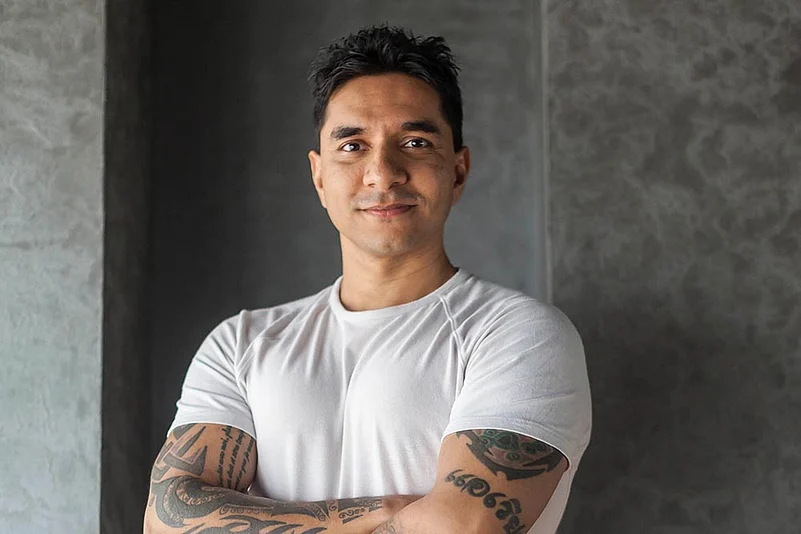A major issue at hand with Indians is deteriorating health with ever deteriorating lifestyles. Why is there disease everywhere, in spite of having the best hospitals, health professionals, sup er foods, diagnostic tools, nutritionists and gyms? Maybe in our attempt to improve health, we have forgotten the basics, moved away from nature and traditions, to furiously seeking a quick-fix rather than a lasting solution.
Read Also: Nutrition Famine: What’s On Our Plate?
Something as simple as a vitamin or a micro-nutrition deficiency is going unnoticed. While our body may not need a significant amount of these micro-nutrients, they do have a major role to play. A supplement is not a solution because one supplement can only fix one symptom. A mineral/vitamin, on the other hand, can fix multiple functions.
Read Also: What Indians Eat - From Chennai To Ludhiana
The most commonly deficient vitamins globally is Vitamin D3 and B12, which can control hundreds of functions in our body. Initially I thought it’s just because of lack of adequate sunlight exposure—a common side-effect of urban living. But imagine my shock when I consulted two farmers who work bare-bodied in the fields and still have Vitamin D3 deficiencies! Apparently it has a lot to do with pollution and smog that blocks the sun’s rays, especially the UVB spectrum, which leads to the production of Vitamin D. I also see a wide deficiency of magnesium—fixing it relieves aching joints, muscle soreness and calf muscle pains. Magnesium controls and is required for over 300 different biochemical reactions and functions.
I must mention Vitamin ‘W’—water. Many of my patients only need to do one thing to heal their condition—drink adequate water. Many have migraines, acidity, constipation and all they need is ‘cellular hydration’, or for the water they are drinking to reach cells. Most don’t drink water the right way. There is an art of drinking water in order to hydrate the body at a cellular level.
Read Also: Of Sabja Seeds And Goji Berries
Indians tend to overeat, especially carbohydrates, while their activity levels are quite not up to the mark. ‘Eat but don’t overeat’, is what I’d say. In ancient India, people could afford to eat carb-heavy meals because of the amount of energy they burnt in physical work. Couple overeating carbohydrates with a sedentary lifestyle, and you invite disease and obesity. Today, food is linked with emotions and food chain industries are minting money. Sad child? Give him an ice-cream. Happy mood? Let’s have fried food. To trick taste buds food firms pump foods like crisps with sugar, salt, MSG. To make things worse, they use highly refined oils which are reused over and over, creating inflammation and oxidative stress to the body.
India, a country with a rich culinary culture, has made many foods into enemies. We have labelled certain foods in a bad light. Thus, when you eat a food with the label in your mind, it creates a guilt and that produces cortical, which is a stress hormone as well as a fat-storing one. Our body is so intelligently designed that it knows how to break down any food the right way provided it’s eaten the right way.
We really need to learn to love what we eat in the right proportion. Food is meant to nourish, not to create stress. Secondly, eat local cuisine the right way and the traditional way. Indian food is for the Indian gene, not South American or Italian or Greek. We can enjoy that once in a way, but it should not replace our staple die because it’s way more cooler and exotic.
A fad diet is a fad diet—if a single one we have read about in the past ten years worked, no one would have suffered from weight. Yet the world still chases weight-loss plans. It’s amazing—when a fan/client posts her weight loss success story on social media, she is bombarded with one demand: please share your diet plan. People need to understand ‘bio-individuality’. All of us are not the same, so how can our diet plans be the same? How about asking the right questions about exercise, sleep, stress, over-eating or under-eating?
The mindset in India towards diet has to change. Only lifestyle changes work, because everyone is different and what works for one won’t work for others. A simple example: So many enrol into cross-fit training (which is great), but all won’t have the same ripped, lean body in spite of doing the same workout. My universal recommendations are: Eat smart, move more, sleep right, breathe deep. Keep it simple. There is no short cut to good health.
(Luke Coutinho is a holistic nutritionist and an integrative medicine and lifestyle practitioner)





















